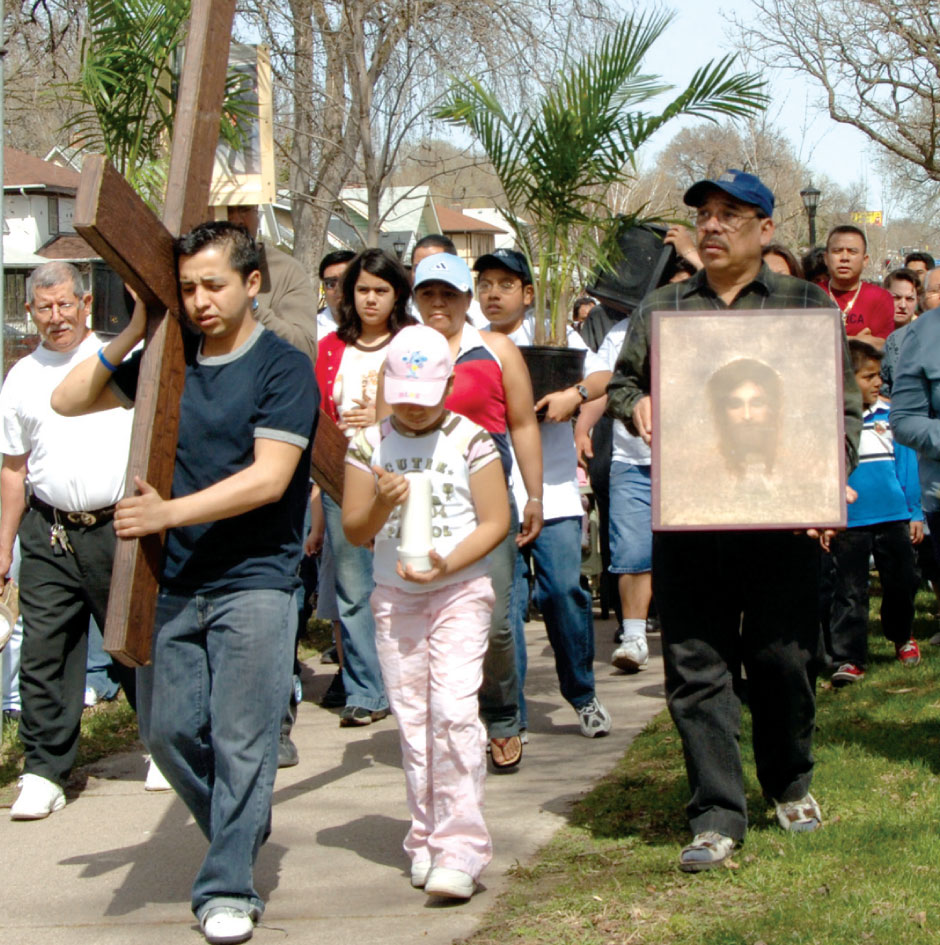Jesus makes little sense to Nicodemus, the Pharisee with whom he is talking in Sunday’s gospel. Nicodemus comes secretly under cover of darkness, which suggests his state of mind. Nicodemus almost believes in Jesus. He begins, “Rabbi, we know you are a teacher come from God, for no human can perform signs and wonders such as you perform unless they come from God.”
In his response Jesus uses his favorite teaching technique in John’s gospel — deliberately creating misunderstanding. “No one can see the kingdom of God without being born from above,” Jesus tells Nicodemus. “No one can enter the kingdom of God without being born of water and Spirit.”
What is being born from above about? Nicodemus can’t get the image. It seems impossible. He thinks maybe Jesus means born again. The word for from above can also mean again. “How can a person once grown old be born again?” Nicodemus asks Jesus. “Surely he can’t reenter his mother’s womb, can he?”
Nicodemus gets nothing but the literal meaning of Jesus’ words. Neither the image from above nor born again opens his eyes to the mystery of God present in Jesus.
Jesus takes a new and assuring tack in the conversation. He promises the Spirit can work anywhere.
“Just as the wind blows where it will and you hear its sound but don’t know where it comes from or where it goes, so it is with anyone born of the Spirit.” The mysterious, invisible, but real power of the Spirit can tease Nicodemus into new insight.
What does being born from above mean? Being baptized, for starters; then, living the Spirit-given life that baptism begins. In other words, seeing and entering and living in the kingdom of God already at hand in this world, attending to the stirrings of the Spirit within us.
- What’s a question you want to ask Jesus?
- What makes John 3.16 so popular? Why carry a John 3.16 poster to display at a football game?
As their conversation about being born from above ends, Jesus makes a final attempt to help Nicodemus believe in him. Jesus draws on the Old Testament Book of Numbers for an explanatory image. He compares himself to the serpent Moses lifted up in the desert. Numbers recounts how the Israelites grow hungry and thirsty during their wanderings and complain against God and Moses.
God sends fiery serpents among the people, and many die from their bites. Many others repent and ask Moses to pray to God for them. God instructs Moses to make a fiery serpent out of bronze and put it on a pole. Anyone bitten by a serpent can look upon the bronze serpent and be saved from death.
In comparing himself to this bronze serpent, Jesus confirms Nicodemus’s budding faith. Yes, like the serpent, Jesus is from God and has been sent to save people from death. Those who believe in him will have eternal life.
“The hair of the dog that bit them” cures the Israelites of the suffering they bring on themselves. Likewise, by our believing in the Son of Man, Jesus saves us humans from the condemnation and death we inflict upon ourselves and each other. God sends one like us to free us.
God’s kingdom is what Nicodemus and all of us hope for. We yearn to see and enter its justice, mercy, peace, and never-ending happiness. We pray it will come soon.
But, people still have to make a choice, Jesus tells Nicodemus. God loves the world and sends the Son to save us but does not compel anyone to believe in him. Those who love the darkness and refuse to come into the light can still choose condemnation.
- What poisonous bites have you experienced in your life?
- What has healed them?
- What current hurt do you feel festering in you? What images do you see or dream that suggest how you might seek healing for this hurt?

Jesus’ mission is not to condemn the world but to save it. He calls us who believe in him to live in the light, to act for all to see. Jesus calls us not to become accustomed to the harsh realities of our world like racial injustice, militarized police, ethnic cleansing, refugees, workers without jobs and health coverage. We cannot take the daily condemnation and crucifixion of millions of our fellow humans for granted.
But, as Nicodemus eventually does, we, too, by the grace of God, can leave our destructive deeds behind and come to the foot of the cross to stand in the light of the one like us who is lifted up. We can begin now to see God’s kingdom in our midst and live the new life Jesus brings. As we wait and pray for the Son of Man to lift us up with him in resurrection, we can, like Nicodemus and his friends, do our part to take broken and suffering humanity down from the cross.
- Who can I or we take down from their crosses? Whose sorrow and pain can we help nurse?
- Whom does God send us to love?
